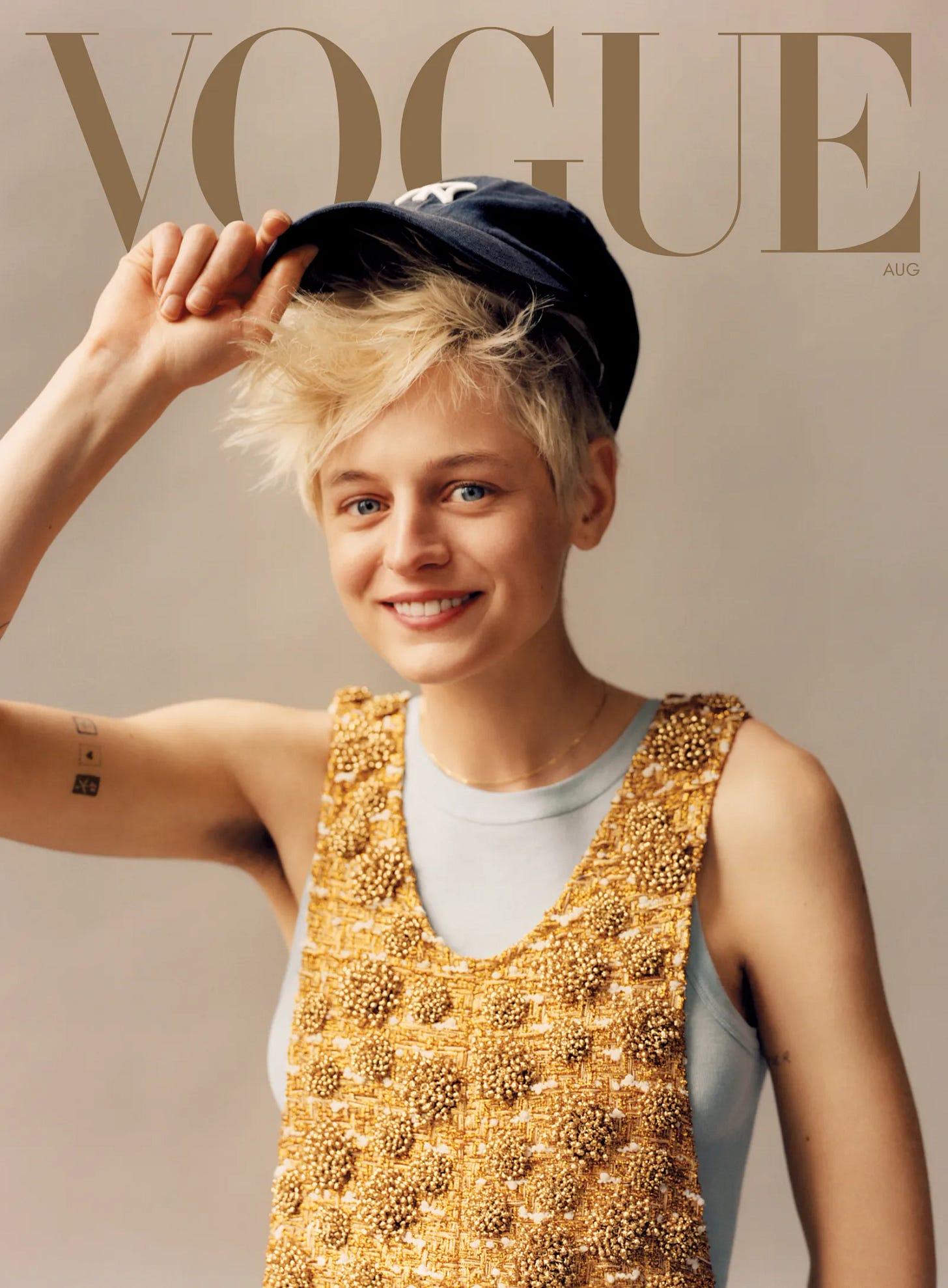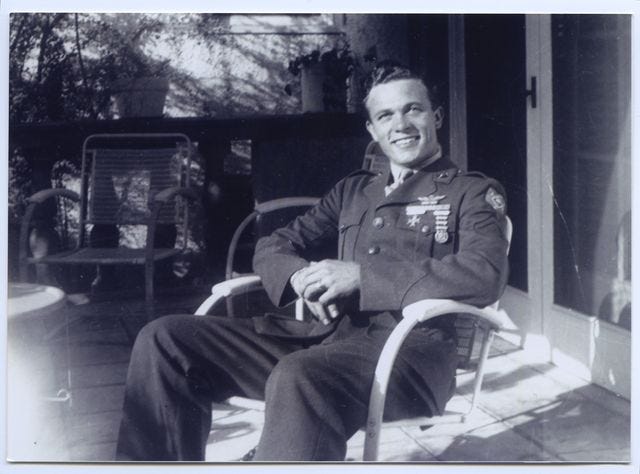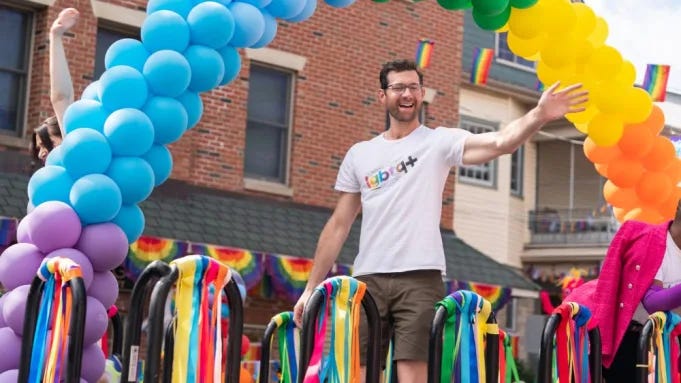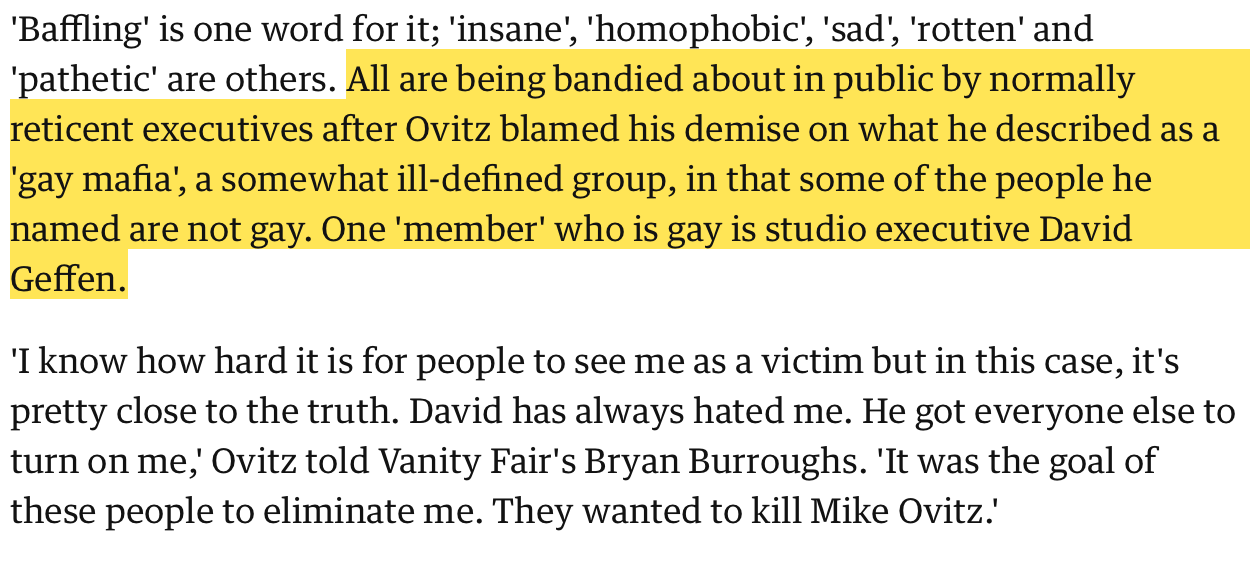'Bros' and an Elegy for the Gay White Male
The 'first gay rom-com' and reflections on Hollywood's Velvet Mafia and an era's 'A-Gays'
So now we come to Bros.
In what is billed as the first big-studio (Universal Pictures) gay rom-com to be released exclusively in theaters, comedian and Billy On The Street provocateur Billy Eichner and muscly Hallmark movie heartthrob Luke Macfarlane portray 40-ish New Yorkers who cross paths one starry night just off a disco-throbbing dance floor.
What ensues for this prospective coupling hits all the familiar beats of the loved-up movie arc: After an initial period of chance encounters and a skittish first date in the opening act, we segue to the shaky beginnings of a relationship that then goes spectacularly awry and, finally, comes a wildly impetuous gesture that leads to a satisfyingly happy ending. Given that it’s directed by Forgetting Sarah Marshall’s Nicholas Stoller (who spoke with The Ankler Hot Seat at TIFF), from a script written by Eichner and Stoller and produced by Judd Apatow (Trainwreck, Knocked Up and The 40 Year-Old Virgin), the film comes with an unmatched date-movie pedigree.
Yet, in a subplot that sheds light on the making of Bros itself, Eichner’s character Bobby, a popular podcaster, rebels when he is called into a studio meeting to discuss possibly writing a boy-meets-boy vehicle, with the apparatchik confident that “love is love is love,” whatever the sexual makeup of the couple.
Bobby blows up in the meeting by saying in his experience, male couples tread a far different road than their straight brethren and, in several scenes that follow, Bros does go there.
It’s pretty certain that director Stoller wasn’t previously acquainted with Grindr hookups, popper-fueled sex, testosterone-injection muscle-building and the sly role-playing premise of the title itself. Yet the movie also cuts to an emotional quick for any guy who grew up queer when Bobby gets to the point of why his relationship woes remain fundamentally at odds with the straight world, in a scene at the shore with Macfarlane’s Aaron.
“I was always too gay, or I was too niche or, you know, I made people uncomfortable. And I'm telling you: enough people tell you things like that, no matter how confident you are, when you're alone at night, you start to think that maybe they're right.”
I don’t want you to get the idea the movie is anything too serious — the laugh-out-loud comedy comes quick and fast. And I had a great time at the screening I went to — Bros is a stylish romp with a buffed-up sheen, plenty of eye-candy and a tongue-in-cheek but ultimately heartwarming side story about Bobby’s quest to establish a national queer museum (hello, someone should pick up on this idea!), all with the help of an unruly steering committee that includes a mirthful conference-room send-up with a gaggle of emissaries from every lettered group in the LGBTQ+ alphabet.
But behind the laughs, Eichner got more serious when asked by correspondent Jonathan Vigliotti on CBS Sunday Morning last week about why we haven’t seen such a theater-release gay movie before. “Well, the real answer to that is that the world, including Hollywood, has been very homophobic,” Eichner said. “And it’s a complicated topic, because in some ways Hollywood has often led the charge when it came to LGBTQ issues and representation. And yet, underneath it all, I think there was always a fear that the quote-unquote mainstream audience wasn't necessarily ready for this type of movie. And I think, because of that, a lot of our stories weren't told.”
GAY HOLLYWOOD TODAY
From the outside, Hollywood seems less homophobic these days than 20 or 30 years ago. Neil Patrick Harris can play any role he likes (though after years of playing straight in How I Met Your Mother, he finally got around to a contemporary gay role in Netflix’s UnCoupled this last summer), RuPaul racks up the Emmys year after year with Drag Race spun off around the world and The Crown’s Emma Corrin has no qualms about announcing that they are non-binary in a Vogue cover story. The outward signs are there, yes, but as they say, do we really still know what lies underneath?

Twenty or so years ago when I was working as a celebrity stylist in Hollywood, I got taken off an upcoming shoot booking with a hot up-and-comer — not a newbie, he had already been in a gross-out comedy after his first screen role following his discovery in the Midwest — because, the publicist told my agent at the time, the actor didn’t want to work with a gay guy. I had never encountered something like that before and it never happened again to my knowledge. But I was new to the celebrity world then and it stung and even now still brings up the kind of feelings that Eichner alluded to in his Bros character’s beach monologue.
I did get some small satisfaction that the young buck’s big first starring action role was an unmitigated flop. And I don’t think anything like that would happen today in this supposedly reformed Hollywood — for one thing, the smart stylist would get right on social media. Or would they? We all know that many things are still left unsaid in entertainment circles in the name of one’s continued employment in Hollywood when the workforce is an army of freelancers. Everyone still wants to keep eating their proverbial lunch in this town.
But back to my story. Thinking about it now, what really rankles is that the publicist went along with the actor’s request — no surprise really, considering the industry’s long track record of enabling gay prejudice and ignorance throughout the decades (Rock Hudson the biggest example). Which leads me to ponder about our whole still-shadowy network of agents, managers and publicists and how they might still “protect” the careers of this or that household-name leading man who is a covert homo. Or how people’s private feelings about gays sometimes manifest.
In 2014, comedian Adam Carolla said that gays just couldn’t handle jokes about them in comedy:
And earlier, in 2002, the term “Velvet Mafia” (David Geffen, Barry Diller and Sandy Gallin usually topped the rumored list) was in full swing. And Mike Ovitz memorably was assailed for blaming his career trajectory to the group.
I’ve heard stories over the years about this Oscar winner’s twink orgy in a Sunset Boulevard hotel or that acclaimed star-director whose boyfriend supposedly used to come visit him on the set of an early network comedy before he became big-screen gold. But even now, even off the record, it’s a near-impossibility to pierce that veil and find out if any of the stories are fact or fiction.

THE G IN LGBTQ+
Getting beyond the Bros breakthrough, the film is even more interesting in where it positions Hollywood on the spectrum of an evolving landscape of gay life in America today.
Universal, Stoller and Eichner are rightly proud of their movie landing in theaters next weekend and TV advertising is already touting that the comedy is made to be seen with a raucous audience. Nonetheless, Eichner briefly stepped in it earlier this month when he said his film felt historic, not like “some streaming thing which feels disposable, or which is like one of a million Netflix shows,” which some thought was throwing shade at writer-actor Joel Kim Booster’s Fire Island, Hulu’s updated take earlier this summer on the oldest romantic comedy template of all, Jane Austen’s Pride and Prejudice.
Booster who was off the social-media grid when the hubbub broke, graciously denied any hurt feelings and stood by his friend and early boss Eichner. “It seems like he was pretty inarticulate in his excitement about his movie getting a theatrical release, which is really fucking cool and something I’m sure the studio and his publicist is making him constantly talk about,” Booster commented. “I truly hope you can enjoy both or neither of our movies without pitting them against each other (even though that is obviously a very fun thing to do and basically what gay Twitter was created for).” Eichner for his part responded in kind to Booster, “I adore you as an artist and as a friend and I have insane amounts of respect for you…we are all in this together.”
When it comes right down to it, what this dustup really seems to me is a clash of generations, especially when you consider something Booster said earlier this year about Fire Island. “I wish everyone could have the experience of watching this in a movie theater if they would like. But do I think it’s vital, and do I almost think it’s more helpful that it’s streaming from the jump? Yeah, I do,” he said. “I think that it’s going to find an audience of people who maybe don’t have access to see a movie in a movie theater right now.”
More than just landing on either side of Hollywood’s current Movie Theater vs. Streaming Wars battles, Eichner and Booster’s respective vantage points color the way their respective movies play out. Bros centers around two white guys, though it features a cast of all-LGBTQ+ actors — Macfarlane, Guillermo Díaz, Jim Rash and Harvey Fierstein, trans actress Ts Madison, bisexual actor Monica Raymund, lesbian actor Dot Marie Jones, and RuPaul favorite Symone, along with cameos from “allies” Debra Messing, Kristin Chenowith and Kenan Thompson. But to some extent, they come across as “types,” which isn’t too surprising because that’s part of the recipe for a popular rom-com. They’ve just been updated.
I can’t fault Eicher, 44, for writing about what he knows and writing it with heart. And he and Macfarlane definitely have chemistry (“We’re dating, we’re fucking, it’s amazing,” Eichner joked to Page Six at the New York premiere Wednesday night. “It’s all very Don’t Worry Darling,” he added, and you could almost believe him.)
But in some ways, the movie’s tropes like the shirtless dance floor full of buff guys (I don’t even know where you would find that in Manhattan these days with gay bars going the way of the dodo) and the inflated muscles and Macfarlane character’s handwringing about an artsy career change, seem to be a waning glance at the world of what were formerly known as “A- Gays,” the monied, high-achieving, stylish cohort of mostly white men that populated every American metropolis and formed the popular image of homosexuality in the late 20th century. Lesbians and everyone else who wasn’t straight-up hetero were not quite allowed in the conversation in the same way.
Booster, at 34 and 10 years younger than Eichner, was also the writer and star of his movie, but the landscape looked much different. His lineup was, in today’s preferred terminology, all “queer” as opposed to old-school gay. Featuring several cast members of Asian descent, starting with Booster in the starring role, alongside out actor Bowen Yang (who also has a cameo in Bros) and Margaret Cho, who identifies as bisexual (though she told The Huffington Post in 2018 that sticking to that label left her wanting, saying, “I've been with people all across the spectrum of gender”), the group included out actors Conrad Ricamora, Matt Rogers, Tomas Matos and Torian Miller. Booster’s troupe portrayed characters that were younger, messier, and not nearly as emblematic of any ideal as the ones in Bros. Even though Fire Island was set in an exclusive community populated by many wealthy men, I can add from visiting this summer that the highly social younger crowd has seen a big change, being much more fluid and accepting of different body types than in years past.
THE NEW ERA
“We had AIDS, they had Glee,” Eichner’s character muses about growing up in his generation versus the one that followed, and the thought stayed with me long after the movie ended. Being from the next generation older than Eichner’s myself, maybe it was because AIDS defined my whole young gay existence, with so many friends and nearly all my own Fire Island housemates long gone. But, to echo another thought from Eichner, I’m pretty good with the way things are now. The world spins forward.
In Bros, Eichner’s Bobby gets an award for his podcast, humorously dubbing himself at the ceremony, “Cis White Guy Man of the Year.” Let Bobby and his creator linger and enjoy the moment — even as the page is turning.






“Even as the page is turning.” Ugh. Almost as bad as “And yet, there’s still much work to be done.”
Emma Corrin came out on Instagram a year or two ago in a post with some photos of them wearing a chest binder.